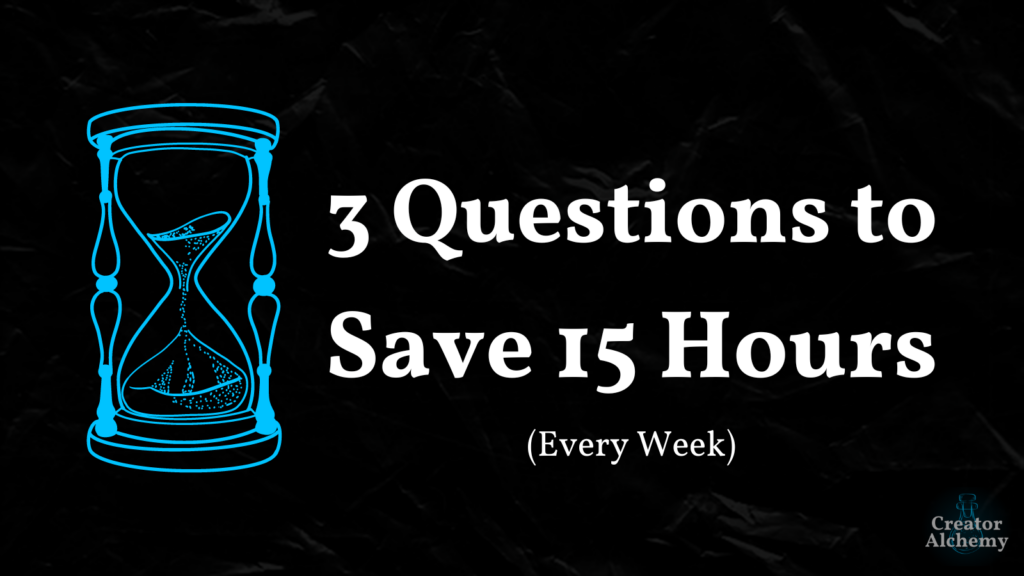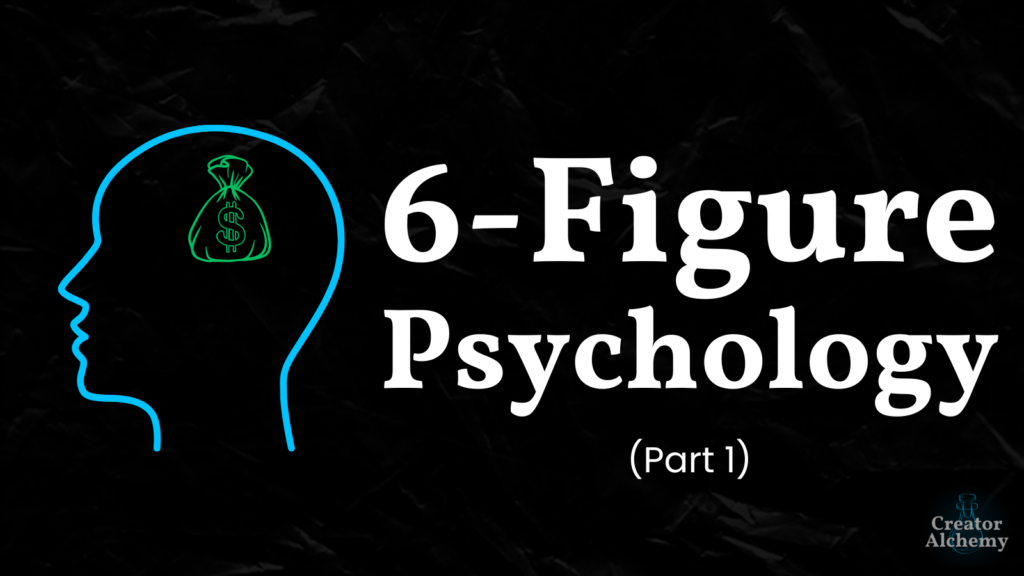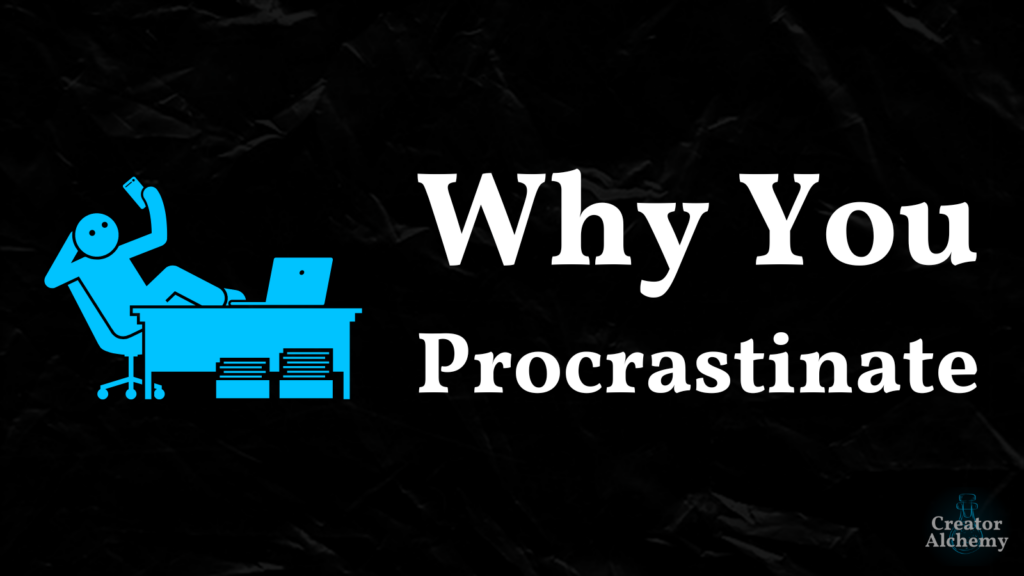Writing can change your life, even if you have zero interest in becoming a “professional writer.”
It helps you:
- clarify your thinking
- communicate your ideas well
- effect change in your industry and impact millions of lives
But unlocking all this potential is predicated on one thing: writing consistently.
And that is what most people struggle with, but not for the reasons you might think.
Writing consistently comes down to understanding human psychology more than learning productivity tactics.
There are three specific reasons I’ve found that hold people back from writing consistently.
Here’s what they are and how to overcome them…
•••
You’re Not Prioritizing It
Writing doesn’t just happen on its own—it takes deliberate action. But it’s not just about building writing into your schedule (that’s obvious), it’s about aligning your time, energy, and attention with what matters most to you.
For example, I front-load my day with cognitively demanding tasks like writing so that I can dedicate my peak mental state to creativity.
Like I talk about in The Availability Paradox, I purposely leave stuff like notifications, emails, and other lower-priority tasks to the end of the day. Some days, I’m too tapped to get to anything else—but I did get to writing and my top priorities.
Because when I start my day checking notifications, looking at my inbox, or pulling up my analytics, I get completely sidetracked and end up spending an hour or more sifting through things that aren’t a priority. But more than the time I’m wasting doing these things to start my day, I’m wasting the most valuable energy and attention I have for the day on shit that doesn’t matter and forces me into a reactive state of mind.
So I either never get to writing for the day, or writing (and thinking) feels like I’m trying to run through waist-high pool filled with molasses.
Starting my day in a reactive mindset muddies my thinking, pressures my communication, and limits my ability to make the best decisions for myself and my business.
So finding ways to not only avoid a reactive mindset, but create a proactive mindset, is critical.
And the simplest way to do this is by cultivating stillness—which is way easier to do when you start your day by working on the things that matter the most instead of trying to shoehorn them into an otherwise frantic day.
If you want to start your day with clarity—on what matters, what doesn’t, and what you need to do for the day to get one step closer to a values-aligned life—start your day with a journaling practice.
If you want to build a portfolio of assets that position yourself as a thought-leader in your space, start your day writing (article, script, workshop, book draft, anything).
If you want to empower people to improve themselves and the world around them, start your day codifying your ideas, insights, and inspirational vision (aka, writing).
But you’ll never “find” time to write. You make time to write by prioritizing it.
And the simplest way to prioritize it is to do it first, before the chaos and obligations of the day catch up with you.
•••
You’re Letting Fear Stop You
Secretly, this is the biggest reason people struggle to write consistently.
It’s also why all the productivity hacks in the world won’t help—because they only focus on the superficial aspects (procrastination, Shiny Object Syndrome, etc.) instead of the root cause of why you’re not doing the things you claim you want to do (typically fear and other limiting beliefs).
Anytime I start to struggle with a self-sabotaging behavior like procrastination or overcomplicating things, I ask myself a simple question:
What am I afraid of in this moment that I’m avoiding?
It’s often one of the Four Horsemen of Fear.
Most of us are afraid of facing our insecurities, we’re afraid of our potential, we’re afraid of putting ourselves out there because of how other people might react, or a myriad of other doubts that plague us on a daily basis.
So consider questions like:
- What are you afraid journaling will reveal about yourself?
- What are you afraid people will say or do if you share your insights?
- What are you afraid will happen if you put yourself and your ideas out into the world?
Maybe it’s not consistency that you’re struggling with.
Maybe it’s the fear of what consistency could lead to…
•••
You’re Not Connecting Writing to a Higher Purpose
No, I don’t mean God or destiny or something (although if that works for you, cool).
I mean why does writing matter?
- Does writing help you spread ideas that make the world better?
- Does writing help you express yourself and your ideas?
- Does writing help you understand yourself better?
For example…
Journaling might feel pointless at first. But if journaling represents a way for you to understand yourself better, track your progress, document experiences you never want to forget, and create an artifact to one day give to your children, then you’ve connected the simple habit of journaling with a higher purpose. And when you believe journaling matters, then you’ll consistently do it.
Writing a newsletter might feel pointless at first. But if writing a newsletter is a way for you to spread valuable ideas, attract incredible opportunities, build a “tribe” of inspirational people, and build deep relationships with your audience, then writing a newsletter becomes incredibly worthwhile. These are many of the reasons I write my newsletter.
Sharing your ideas might feel pointless at first. But if you realize taking a “permissionless approach” to sharing your ideas and perspective on topics can attract life-changing opportunities at the same time it helps you hone your own thinking, then it becomes a worthwhile endeavor. Jay Yang got a six-figure job working for Noah Kagan (bestselling author and founder of a $100M company) before he graduated high school using this method. Check out How to Make Success Inevitable (7 Skills Anyone Can Learn) for more details about Jay and other people who’ve made success inevitable and how you can, too.
So think about why writing matters to you—connect it to your values, your purpose, your ideal life, anything.
Because when we feel like what we’re doing matters, we’re way more likely to follow through with it.
•••
Final Thoughts
I firmly believe everyone should write, even if you have zero interest in ever being an author or professional writer.
I hear from people—entrepreneurs, founders, executives, coaches, aspiring creators—all the time who say they’d love to write more but struggle to do it consistently.
And the first reasons they give are always bullshit.
- “I don’t have enough time!”
- “I don’t know what to write about!”
- “I don’t know how to get started writing!”
None of these are the true reasons they’re not writing.
- They’re not prioritizing.
- They’re letting fear get in the way.
- They’re not connecting writing to a higher purpose.
It’s not a lack of productivity tactics that’s stopping them—it’s human psychology.
Understanding yourself—your aspirations, your insecurities, your interests—these are the things that will help you establish a consistent writing habit and unlock its benefits.
You have too much potential to leave it unrealized.
You have too much value to give to the world to keep it to yourself.
You have too many incredible insights and ideas to never refine them.
So please, write.
Read Next: If you want to learn more about writing a book, check out A Quick and Dirty Guide to Book Publishing for Entrepreneurs.



